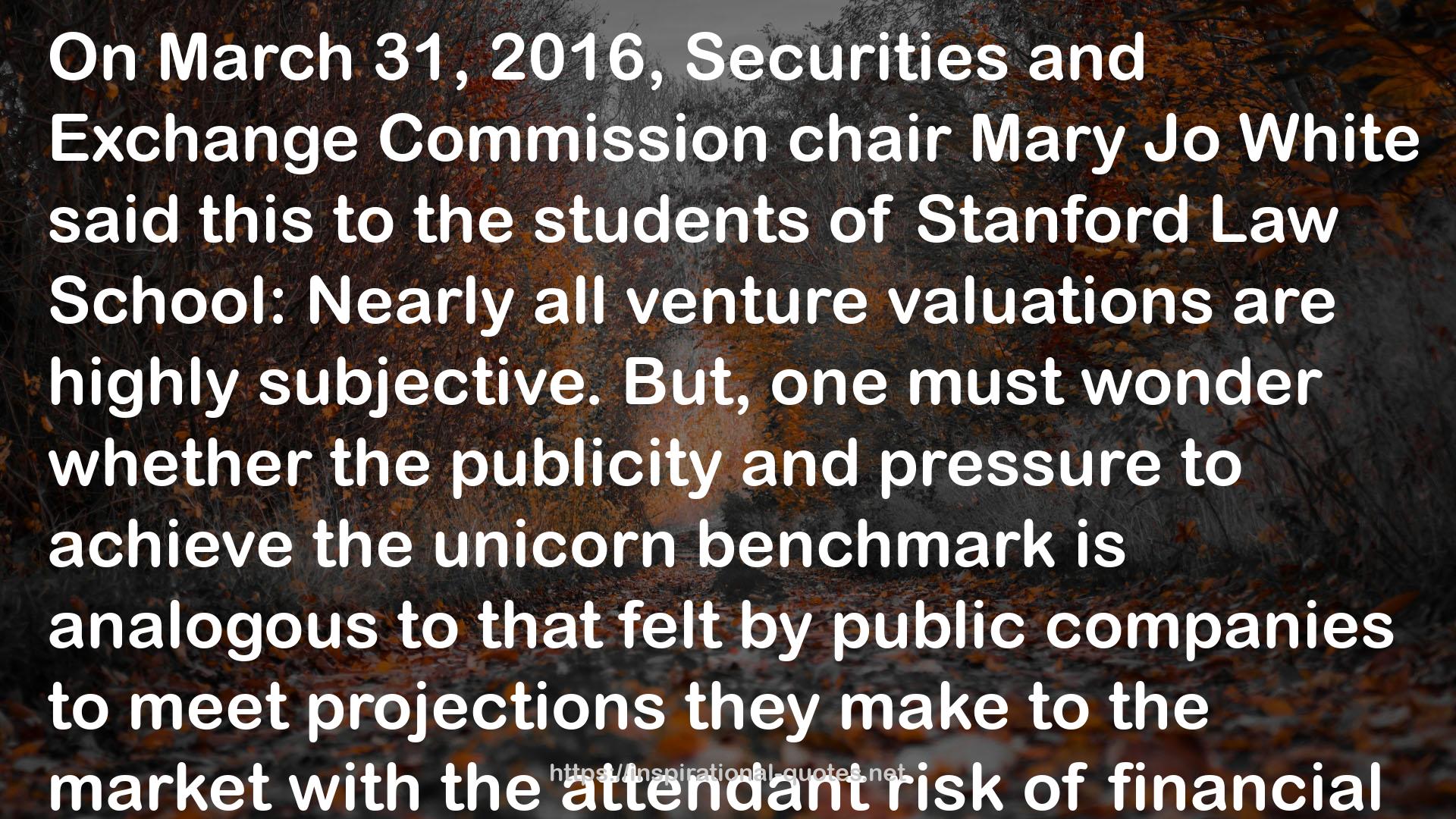" On March 31, 2016, Securities and Exchange Commission chair Mary Jo White said this to the students of Stanford Law School: Nearly all venture valuations are highly subjective. But, one must wonder whether the publicity and pressure to achieve the unicorn benchmark is analogous to that felt by public companies to meet projections they make to the market with the attendant risk of financial reporting problems. And, yes that remains a problem. We continue to see instances of public companies and their senior executives manipulating their accounting to meet various expectations and projections.1 We have reached a point in the world of technology startups where the fervor for building a company with a billion-dollar valuation — the elusive startup unicorn — is overshadowing the creation of real value. It is not the first time we have been here; the world of startups and venture capital has always run in cycles, from optimistic zeal to caution to post-catastrophe introspection and back again. But perhaps it is time that entrepreneurs and investors alike begin waking up to the fact that the “valuation-at-all-costs” model, with its relentless pressure, remote odds of success, and human cost, is not only unsustainable but bad business. At this point in the current cycle, the radically overvalued startup appears to be headed for the endangered species list. That is a good thing. While billion-dollar behemoths will always exist, and the high-wire act of chasing scale while also chasing the cash to fund that scale will occasionally produce a solid company, there are other ways to build a business. There are better ways to build a business. "
― Brian de Haaff , Lovability: How to Build a Business That People Love and Be Happy Doing It
